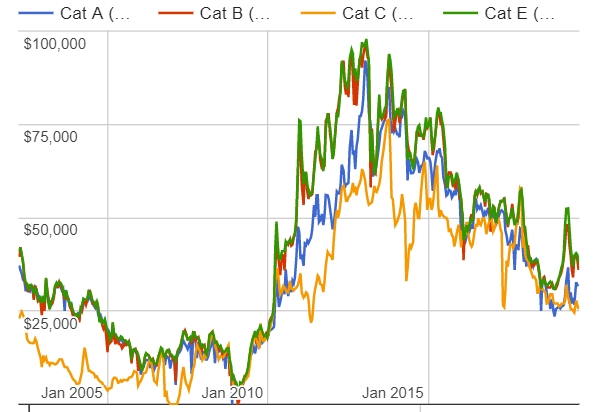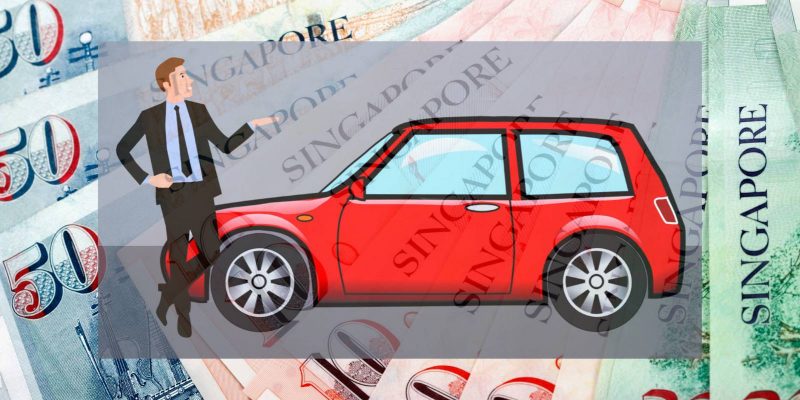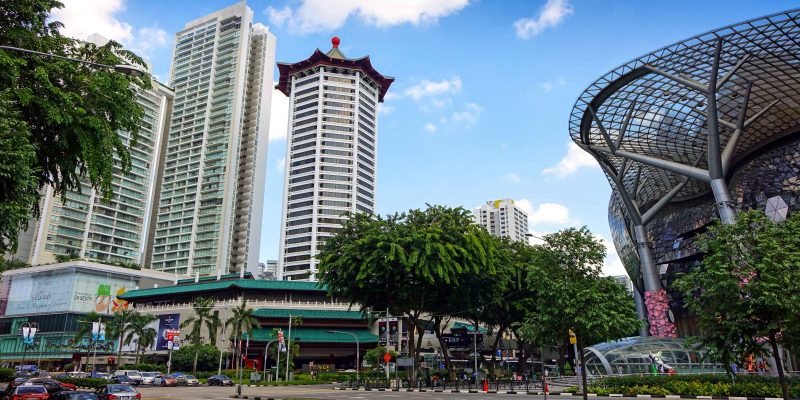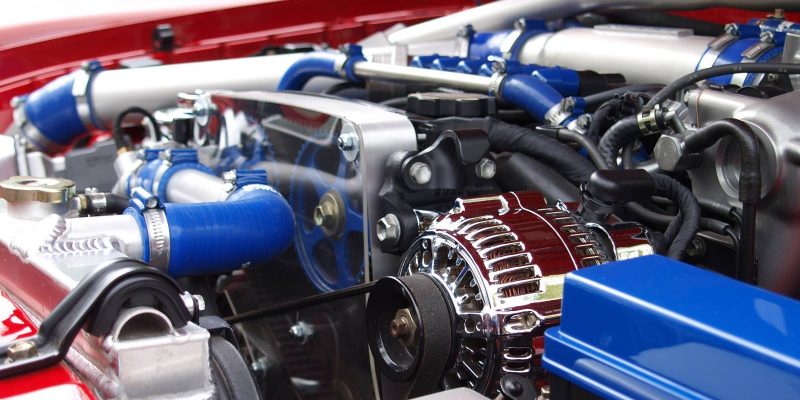If you plan to buy a car (even a pre-owned car) in Singapore, you cannot avoid the COE (Certificate of Entitlement). It is part of the car price you have to pay. But many people find it hard to understand the COE price, as shown above.
So, instead of a lengthy explanation which usually causes more confusion, I think these 10 questions can help you understand COE price fluctuations easily.
Is COE an investment or a disposable product?
COE (Certificate of Entitlement) is definitely NOT an investment, although the price fluctuates as stocks do.
The value of your COE depreciates from the day you register the car. Each day, you lose about 0.027% of the COE price you paid. Every COE shares the same depreciation rate, but not the absolute value, obviously. So, some car owners lose more money each day than others.
For example, if you get the COE at the price of $30000, you will lose $8.1 every day. If you got it at $60000, congratulations, you lose about $16.2 per day.
After 10 years, the value of all COEs, regardless of your cost of getting the COE, will be $0.
So, COE is not an investment.
In fact, COE is a disposable product:
- It can only be used for up to 10 years.
- It can only be used once.
Can I buy a second-hand COE?
One COE can and MUST be tied to one car only. In other words, once used, the COE becomes an essential part of the vehicle.
So, you cannot sell a COE without selling the car. Similarly, you cannot buy a second-hand COE without purchasing the car.
For this reason, there is a market for second-hand cars in Singapore. But there is no market for second-hand COEs.
An imported second-hand car needs to get a new COE before you can drive it on the road.
A locally (Singapore) registered second-hand car in the market must have a valid COE. You are NOT allowed to sell the locally registered second-hand car once the COE expires.
How is the COE rebate calculated?
By default, the lifespan of all new COEs is 10 years.
After 10 years, it is invalid. You have to either scrap the car or to renew (revalidate) the COE for another 5 or 10 years.
But if you scrap the car before the COE expires, you can claim back some money, the COE rebate.
The COE rebate is the prorated remaining value of the COE. The remaining value is evenly distributed in 10 years (120 months).
So the COE rebate is calculated as follows:
(The remaining period of COE/120 months)* The original (NOT the current) COE price
The remaining period is calculated to “day”. So, the remaining period can look like 20.1 months.
The original COE price is the price you paid for the new or renewed COE at that time. For a locally registered second-hand car, the original COE is indicated in the car registration paper.
How is the current COE price determined?
The COE is offered to the public in the auction-style bidding system. You name the maximum price (bidding price) you are willing to pay for it.
If the number of bids with a bidding price higher than your bidding price is more than (or equal to) the number of COEs offers, your bid will be unsuccessful.
If your bid is successful, the final transaction price (COE price) will not exceed your bidding price. All successful bidders will get the COE at the same price regardless of the individual bidding price.
The new (current) COE price is set by the lowest bidding price among all successful bidders.
Why COE price fluctuates?
So, the COE price is mainly determined by supply and demand, similar to the stock price.
The factors contributing to the COE fluctuations include:
- The number of COE supplied.
- The number of potential car buyers.
- The purchasing power of potential car buyers.
- The perceived value of car ownership among potential car buyers.
The number of COE supplied is transparent. The quota system gives the exact number of COEs for bidding in each quarter.
But the supply changes from quarter to quarter.
The demand also changes with the economic environment. When the outlook is bright, there usually are more bids with higher bidding prices. Conversely, the number of bids may shrink during economic downturns.
The special demands may also drive up the COE price. For example, car-sharing companies may bid against individual buyers. This did happen before Uber's exit to Singapore.
Who can manipulate COE price?
Many parties can manipulate the COE price in Singapore in different ways
The government
In FY2018, COE contributes about 4.4% of government direct income (source, under Vehicle Quota Premiums). In FY2017, FY 2016, and FY 2015, the contribution is about 7.95%, 10%, and 8.4%, respectively.
So, a lower COE price means less income for the government.
But because the car cost is included in the Singapore CPI (Consumer Price Index), a higher COE price will drive up the CPI.
So, the government has to balance the two factors to maintain a relatively stable COE price.
The measures the government can explore to manipulate the COE market include:
- Revise the quota system.
- Revise financial rules for the car loan.
- Revise the road tax, insurance, ERP, and other charges.
- Revise import duty.
- Revise the rebate/penalty.
Car dealers
In Singapore, although you can obtain COE and buy a car separately, most of us buy a car “bundled” with the COE.
When bundling the car with COE, the dealers may speculate and therefore make a profit from the COE fluctuations.
The list price from most car dealers only includes the “non-guaranteed” COE. It means if the COE price goes up, they may choose not to do business with you unless you top up some money for the COE. If it goes down, they simply make more profit (otherwise, you lose your deposit).
The interest of luxury car dealers may differ from dealers of mass-market cars. In Singapore, the COE accounts for about 30-60% of the car price for most cars.
When the COE price is high, it is hard to sell cheap cars or cheap models. Luxury car dealers will be happy.
When the COE is low, more people will buy a car, and most of them will choose cheap ones.
Besides, the car dealers can “stock” some category E COEs for up to 3 months.
Technically, individuals can also speculate on Category E (and C as well) COEs. But there is no market for the sale and buy these temporal COEs.
Car rental companies
Due to the high cost of car ownership, many foreigners who are stationed here temporally prefer renting a car instead of buying one. They can use a foreign driving license for up to 12 months.
With the booming of private car hiring, some big players may stock (directly or indirectly) large fleets of cars and lease them to drivers.
These cars, unlike taxis, must obtain the COE through the standard bidding process.
So, the big car rental companies may drive up the COE price a lot when a fleet expansion is needed.
Individuals
In Singapore, a car is not essential for most families. The public transport system covers most areas. And it is efficient, not expensive, and reliable (at least used to be).
So, individuals (except the wealthy ones) may consider buying a car when the COE is right (means low) and the economy is good.
But when this happens, you will see higher demands, which prevent the COE price from decreasing.
When will COE price increase?
Nobody knows except when the government hands out all Singapore reserves.
But generally, when the supply is cut, or the economy becomes better, you will see the COE price increase.
When will COE price decrease?
Nobody knows except during an economic crisis.
Typically, if the supply increases or economics worsens, the COE will decrease.
What is the minimum and maximum COE price?
The sky is the upper limit.
The reserve (minimum) price is $2.
Can I extend the COE after 10 years?
Yes, after 10 years, you have two options:
- Scrap the car to get the Preferential Additional Registration Fee (PARF) rebate.
- Renew (revalidate) the COE for 5 or 10 years without bidding and lose the PARF rebate.
So, you need to do the maths on whether you should renew the COE or scrap the car.
Actually, this is the dilemma most car owners face (or will face). If the COE is high, the relative value of the COE (to a new car in the market) is high, but the cost is high. When COE is low, renewing COE is cheap, but the new car is also not expensive.
Please note, the road tax for cars older than 10 years is a bit higher as well.
To renew the COE, you have to use the Prevailing Quota Premiums (PQP), which is the moving average price of the last 3 months. The fluctuation of PQP is not as significant as that of COE price. But it does follow the overall trend of COE price.
Do you have any questions or thoughts on the COE system in Singapore?
You may share them in the comments section below.
For questions on buying a car in Singapore, please check Singapore car ownership guides page.
For questions on driving a car in Singapore, please check Singapore driving guides page.
For maintaining and servicing your car in Singapore, please check Singapore car maintenance guides page.
For driving from Singapore to Malaysia, please check Dring to Malaysia guides page.
You can also reach us through:
Safe driving! Happy driving!





Leave a Reply